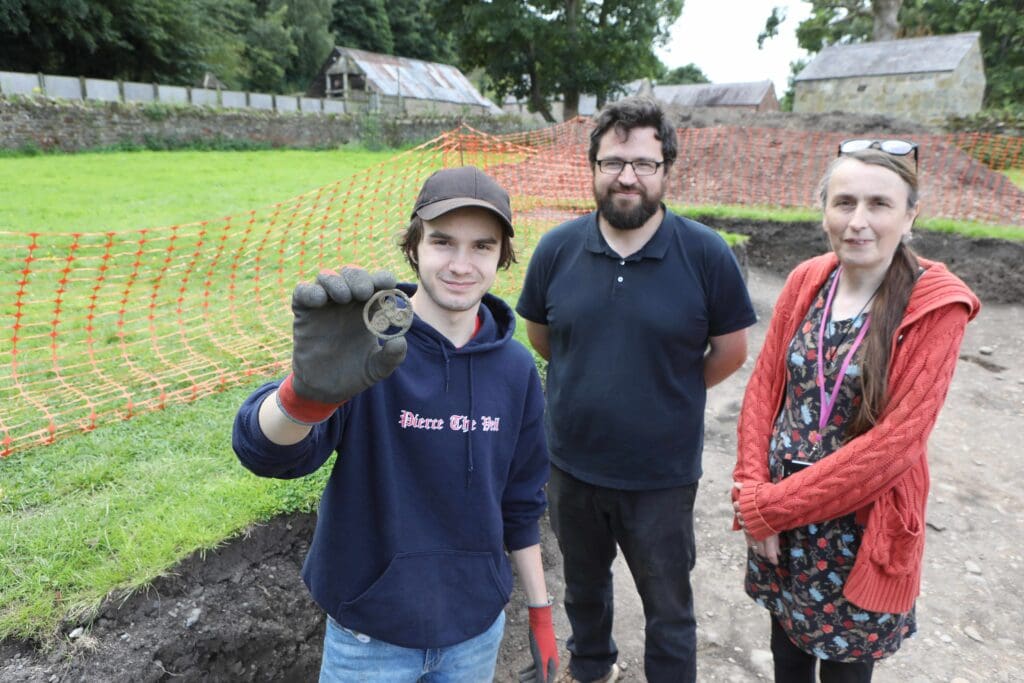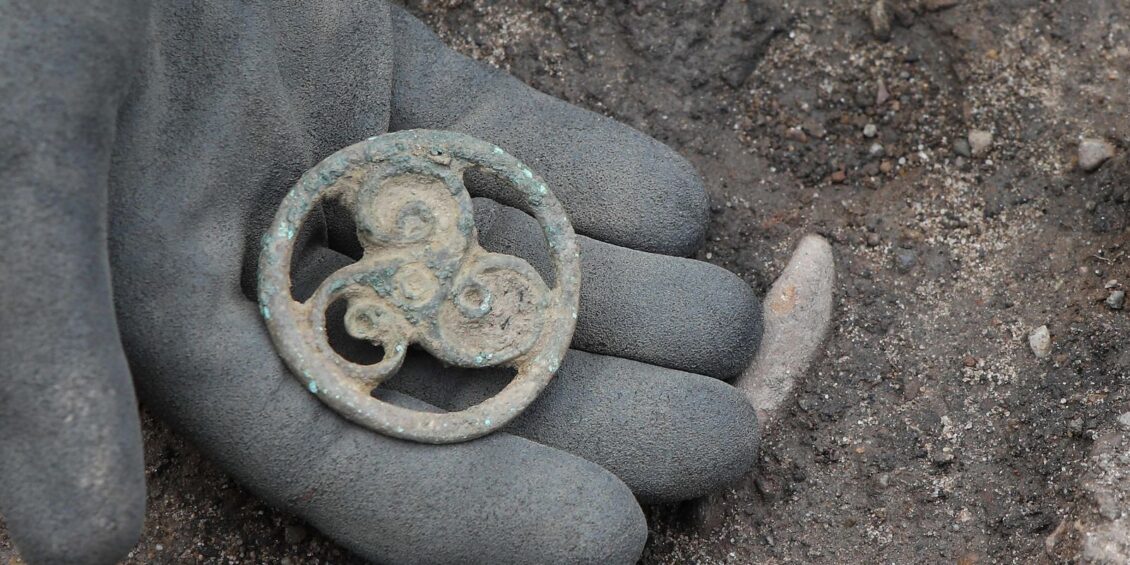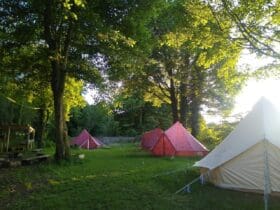A piece of the jigsaw puzzle that could unlock 1,000 years of history at a Flintshire-based heritage site has been unearthed.
An excavation, funded by the UK Government Shared Prosperity Fund (UKSPF), has led to the discovery of a horse bridle mount dating back to the late Iron Age at the Greenfield Valley Heritage Park.
The artifact, which is up to 2,000 years old, was found within the remains of a newly discovered settlement that likely belonged to the Iron Age Deceangli tribe but appears to have continued into the early Roman period.
The region occupied by the Celtic clan, which spread as far west as the River Conwy and included Denbighshire, Flintshire, and Wrexham, was rich in lead and silver, materials highly prised by the Romans.


Chris Matthews, senior project archaeologist for Heneb, the Trust for Welsh Archaeology, led the 40-strong team during the three-week Basingwerk excavation, which was part of a joint programme led by the Greenfield Valley Trust and Flintshire County Council.
As well as the mount, several pieces of pottery, a hearth, and rows of postholes relating to the multi period settlement were uncovered.
He said: “It is a really big piece of the puzzle that will help us fill in a lot of gaps in our knowledge. When there are gaps, we make presumptions, but this will help us build a clearer picture of some of the most elusive chapters of our past.
“One fascinating aspect of this is that we can now start to see that at least some of local Britons were living in harmony with the arriving Romans.
“We suspect that, rather than simply conquer the region, the Romans saw the opportunity to work with the Deceangli to quickly establish a prosperous lead and silver industry that fed the growth of Roman rule in Britain.
“In addition to the bridle mount, the excavation has also found a wide variety of pottery types. This suggests that those living in this settlement were wealthy and directly trading with the occupying Roman legion.
“We can also date the place to a time when Chester was only just being built, which further hints at a cooperative relationship between the Romans and the North Walian tribe.
“Finding the mount really was the cherry on the top of the excavation as it confirmed how significant the site is.”
The precious item was found by Edward Whitby, a teenager whose desire to be an archaeologist has only increased as a result of the discovery.
Hailing from Bagillt, the 17-year-old said: “It was amazing. I was cleaning back and from under the mud a glint of green caught my eye.
“I called Sophie Cooledge (project archaeologist at Heneb) across thinking that it was a ring, but that was when we realised it was an iron age horse mount.
“I’m over the moon to have found it, I was shaking; it was so exciting as it is so different to the ordinary.
“The fact that it is around 2,000 years old is unbelievable.”
This year’s excavation follows on from the UKSPF funded one 12 months ago, which saw a 10th century Viking strap buckle unearthed in the backfill of a ditch.
Brenda Harvey, chair of the Greenfield Valley Trust, said: “The excavations over past two years have been thrilling.
“The Valley has a complex and fascinating history, and these findings add a new phase to our story. This is exciting for the local community as well as the experts and will help us attract more visitors.
“We are grateful to all of those involved in organising and carrying out the digs and to UKSPF for making it possible.”
Councillor David Healey, Flintshire County Council cabinet member for climate change and economy, said: “This is a perfect example of the impact of the UK Shared Prosperity Fund.
“With the funding support, the history of Flintshire has been enriched and provided Greenfield Valley the opportunity to increase visitor footfall as a result of improved talks and exhibitions.”









Leave a Reply
View Comments